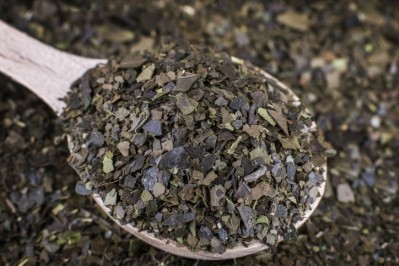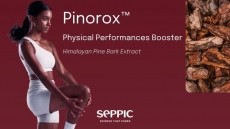Guayusa and Lion’s Mane square off in cognitive performance study

Writing in the journal Nutrients, researchers from The Center for Applied Health Sciences shared findings from a randomized, double-blind, placebo-controlled, crossover trial that compared the effects a single dose of either a guayusa (AMT) leaf or a lion’s mane (LM) mushroom extract on mental acuity and mood.
“This unique investigation measured the acute benefits of AMT and LM on objective cognitive performance, subjective cognitive perception, and self-perceived happiness in low to moderate caffeine consumers,” they wrote. “To our knowledge, this is the first study to examine the effects of LM on cognitive performance in healthy subjects.”
The research was funded in part by ingredient supplier Applied Food Sciences, which provided the guayusa extract (marketed as AmaTea Max for nootropic energy without the jitters) used in the study.
Guayusa and Lion’s Mane for the brain
Guayusa extract, derived from the leaves of holly trees native to the Amazon rainforest, contains caffeine, chlorogenic acids, phenolic compounds and terpenoids and has a long history of traditional use as a gentle stimulant and source of potent antioxidants.
The Applied Health Sciences team referenced findings from a recent study that compared the acute effect of the AmaTea Max guayusa extract on cognitive function and e-gaming performance, reporting a greater kills/match ratio in the game Fortnite vs. caffeine and placebo, as well as increased vigor and reduced fatigue as compared to placebo.
For lion’s mane (Hericium erinaceus), most of the research to date has focused on the neuroprotective benefits of its β-glucan polysaccharides, terpenoids, erinacines or other compounds in the context of neurodegenerative diseases. The researchers noted that only a few studies “have examined cognitive performance in healthy adults, and none have investigated the acute (i.e., single dose) cognitive effects”, adding that the mushroom’s erinacines have demonstrated nootropic effects through the stimulation of nerve growth factor (NGF) synthesis.
“Given the dearth of scientific investigations examining both guayusa and LM on acute cognitive performance in healthy adults, this study aimed to assess the effects of AMT and LM on objective cognitive performance and subjective cognitive perception […],” they wrote.
Study details
The study recruited 40 healthy men and women between the ages of 18 and 50 who habitually consumed less than 240 mg of caffeine per day and randomly assigned them to consume either a single dose of 650 mg of guayusa extract, 1 g of Nordic-grown Lion’s Mane fruiting bodies or a maldodextrin placebo.
Participants attended three testing visits and performed a series of neuropsychological tests before and at one and two hours after consuming their assigned substance.
“AMT significantly improved cognitive performance and self-perceived cognitive indices of affect over a 2 h period and perceptions of happiness 2 h post ingestion,” the researchers reported. “In comparison, LM helped improve working memory, complex attention, and reaction time 2 h post ingestion and perceptions of happiness over a 2 h period.”
The researchers attributed the guayusa extract effects to its caffeine content while suggesting that the nootropic benefits of lion’s mane may be due to its hericenones (metabolized into erinacines) and ergothioneine content.
Source: Nutrients
Acute Effects of Naturally Occurring Guayusa Tea and Nordic Lion’s Mane Extracts on Cognitive Performance
doi: doi.org/10.3390/nu15245018
Authors: Michael B. La Monica et al.
















